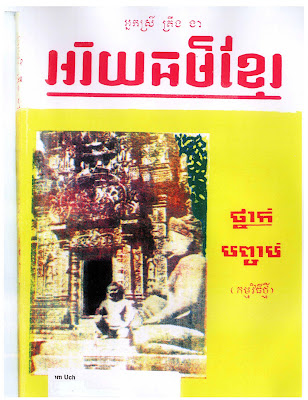Pich Samnang, VOA Khmer
Phnom Penh Monday, 31 January 2011“They have their own capital, or can borrow more money from commercial banks.”
One recent afternoon, farmer Hem Preoung was discussing what to do about a small wooden barn full of paddy rice with a group of other farmers.
The 62-year-old farmer is a member of the Preah Theat village farm association, in Kandal province’s Kandal Stung district. For the past five years, she has kept 15 kilograms of harvested paddy rice in the small barn as a kind of bank.
“In the past, we didn’t have enough to eat,” she said in an interview. “But now we save our paddy here to improve our standard of living. The more we save, the better paddy we’ll get.”
Paddy rice, or unprocessed grain that which comes straight from the field, is a vexing question for Cambodia’s farmers and economic policymakers. Not only do farmers not earn as much as they can from it, but the nation has so far been unable to capture and produce it for a high-value product.
Along with 25 other families in the association, Hem Preoung earns about 20 percent interest on her paddy deposits once she decides to withdraw her grain from the bank. And there are five “paddy banks,” as they are called, in the district.
She can borrow seeds from the bank for seed plant or to feed her family, paying 20 percent annual interest herself, avoiding high-interest loans or low-price sales through middlemen.
That’s a change from the normal way of doing things for many farmers, who account for about 80 percent of Cambodia’s population. Typically, a glut of paddy is sold at low prices during harvest time, when farmers are also expected to pay back high-interest loans made during the growing season.
Chhay Meng, a program manager for Caritas Cambodia, who has helped farmer associations set up 17 paddy banks in Kandal province, said these innovations help prevent the whipsaw effect of middlemen and also regulate the flow of paddy to neighboring Thailand and Vietnam.
Nationwide, there are thousands of paddy banks across 18 provinces, according to Cedac, a development NGO. The number is growing as Cambodia looks to produce an abundance or rice for export.
Still, an estimated 70 percent of Cambodia’s paddy surplus finds its way over the borders, according to the Economic Institute of Cambodia. That’s because Cambodia lacks the capital and capacity to buy up the surplus of its own farmers. That informal outflow costs the country millions of dollars in added value, such as the husks.
In its monthly economic outlook for January, the institute suggests the more formal adaptation of the paddy bank system as a means to solve the problem, helping the government reach its goal of greater exports. The government wants to see a million tons of milled rice exported by 2015. In the first 10 months of 2010, it managed less than 380,000 tons.
Noeu Seiha, the EIC’s research manager, said many NGOs are helping farmers set up paddy banks, but these small-scale projects cannot handle the surplus. More formal, larger banks are needed to handle the massive surplus from farms following the harvest, he said.
“When farmers have an abundance of paddy rice, they don't have to hurriedly sell their grains,” he said. “They can deposit their paddies with these banks, and if they need money, they can borrow from the banks to pay their debts or for their own uses.”
The government has plans an “open paddy market,” where farmers can deposit rice in a community storehouse and withdraw it for sale during months of high price, said San Vannty, an undersecretary of state for the Ministry of Agriculture.
The government also hopes to stake more capital with millers to help them absorb paddy from farmers, he said, but he declined to specify an amount.
But the government so far allocates only $36 million, just 10 percent of what’s needed, to buy up paddy surplus. About $20 million of that is provided as loans to rice millers, said Sun Kunthor, president of the Rural Development Bank.
“We just provide them some loans as an incentive to invest more in this field,” he said. “They have their own capital, or can borrow more money from commercial banks.”
For their part, rice millers say they need more capital to buy the paddy and more modern equipment and facilities to produce and store high-quality rice.






